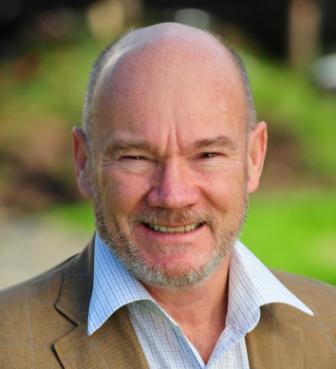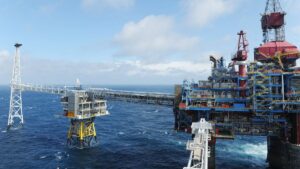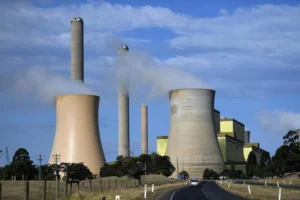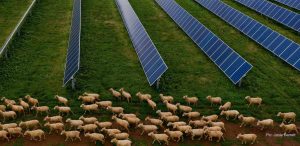Australia was being “dragged along” in the global green race, with voters being offered a false choice between either a growing economy, or a thriving society and environment, the chair of the Australian Renewable Energy Agency has said.
Speaking at Sustainable Business Australia’s inaugural Fiona Wain Oration – an event created in honour of the former SBA head, who died in October 2012 as a result of cancer – ARENA chair Greg Bourne warned that Australia’s natural capital was being mismanaged, using a “model of irrational development leading to unsustainable growth.” 
“We can no longer rely on a neo-classical economic theory that espouses that unfettered development will permeate wealth throughout an economy and that regulation will minimize the most harmful effects of damage to the environment,” Bourne said on Tuesday, arguing that we should approach the environment and sustainability in the same way we do large capital projects.
“We need to be thinking 50 years ahead. Long-term objectives need to be set, together with real, measurable targets. We must focus on outcomes not outputs. The business of government and the business of commerce must be aligned to achieve those targets and they must be reported on.
“Fiona Wain stated back in 2005 that ‘Sustainability is the biggest opportunity for wealth generation and maintenance that business has ever been presented with’. But to get the trajectory right and maximise long-term opportunities we need an ambitious, consistent and credible enabling framework,” Bourne said.
“We need our government to provide this or at least not get in the way.”
Bourne, whose own agency is slated to be dismantled by the Abbott government, noted that the federal government’s major policy focus in the eight months since its election had been in removing, dismantling or gutting almost every climate and renewable energy support mechanism Australia had.
The Renewable Energy Target; the Clean Energy Finance Corporation; the carbon price; the Climate Change Authority and Climate Commission, the Environment Ministry, the CSIRO – all scrapped or pared back, to be replaced with the Coalition’s strikingly inadequate replacement policy, at the centre of which was the highly criticised Emissions Reduction Fund.
“Up until recently Australia was a credible competitor with many physical and natural advantages,” he said. “(Now) the global green race is well underway with our competitors wearing spikes while we are wearing thongs!”
“We have the technology, we have the finance, we have the wherewithal and we have public support,” he told the SBA gathering. “What we don’t have is the gumption to wear spikes.”
Bourne – who knows a thing or two about energy technology and resources, having once been a country head for BP Australia – stressed that Australia was host to more renewable resources per person than any other nation on earth.
“Australia and Australians need to become pathfinders. Our role should be to find the way – not get dragged along. We need to be at the forefront of a new ‘industrial revolution’, the ‘sustainability revolution’,” Bourne said.
“We need to engender accountability for our contributions and solutions. We need to let people know that business as usual is changing and that we’re prepared to show the world how effective a low-carbon economy can be.
“We need a government willing to put in the framework, to create a space in which an ambitious, consistent and credible response to climate change can foster innovation,” he said.
“In a matter as important as this; it is completely unacceptable for our government to take a ‘you first’ stance and as Jeffery Sachs says ‘certainly unacceptable to head in the wrong direction’.
“We need to safeguard and restore natural capital. We need to demand efficient choices along the entire system of production and consumption. We need a productive and efficient use of our current resources and an agreement that it is economically unacceptable to waste them.
“We should think about developing our economy while embracing the climate change mitigation challenge as a bridge. It takes us over economic slumps, bypassing inefficient practices and avoiding unnecessary resource misuse.”










